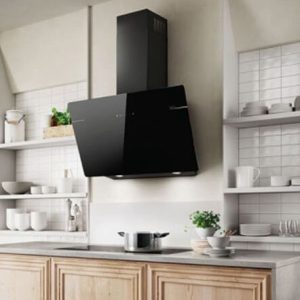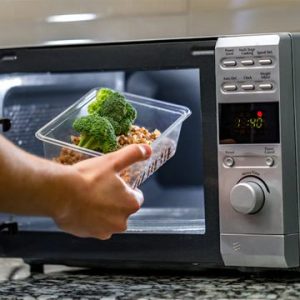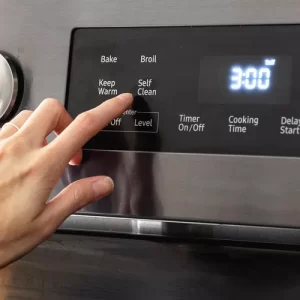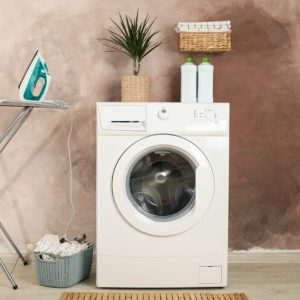چگونه بوی بد یخچال را از بین ببریم؟
بوی بد یخچال بسیار آزاردهنده است و دانستن راهی که بدون آسیب به یخچال بتوان بوی بد آن را از بین برد بسیار کارآمد است. در این مقاله به شما کمک میکنیم که چگونه از بوی بد یخچال خود جلوگیری کنید و یا اگر یخچال شما بوی نامطبوعی دارد چگونه آن را از بین ببرید. پس تا آخر این مقاله با ما همراه باشید.
1. استفاده از پاک کننده های بو
با گذشت زمان، طبیعی است که اکثر یخچال ها عطر کمیناخوشایند ایجاد کنند. در حالی که بوی آن میتواند ناخوشایند باشد، اما هیچ آسیبی به خود غذای شما وارد نمیکند. اگر میخواهید بوی غذا را قبل از اینکه به طور دائم در داخل یخچال شما فرو برود، از بین ببرید، با دور ریختن مواد غذایی بد شروع کنید. همچنین میتوانید یک خوشبوکننده یا تفاله قهوه و زغال فعال را در قفسه بالایی قرار دهید. برای جلوگیری از بوی بد در وهله اول، غذا را به محض شروع به فاسد شدن دور بریزید و همیشه غذا را در ظروف در بسته نگهداری کنید.
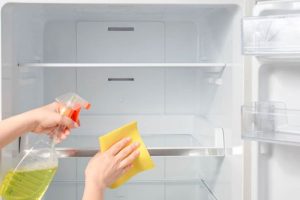
برای رفع بوی بد یخچال یک ظرف باز جوش شیرین در یخچال نگه دارید.
جوش شیرین بویی ندارد، اما در جذب و خنثی کردن عطرهای دیگر عالی است. برای خلاص شدن از شر بوهای داخل یخچال، یک ظرف جوش شیرین را باز کرده و در پشت قفسه بالایی نگهداری کنید. هنگامیکه متوجه شدید بوی نامطبوعی شروع به بیرون آمدن میکند، آن جوش شیرین را بیرون بیاورید و ظرف جوش شیرین دیگری را جایگزین آن کنید. اگر یخچال بوی بدی از دارد و میخواهید بوی زیادی را به یکباره جذب کنید، یک ظرف پر از جوش شیرین را روی یک فویل آلومینیومی بریزید و بگذارید یک شب در یخچال بماند. سپس جوش شیرین را دور بریزید.
با سرکه سیب آب پز شده بوهای بد یخچال خود را از بین ببرید.
سرکه سیب و آب را با نسبت 3 به 1 ترکیب کنید. مخلوط را در قابلمه ای بریزید و روی اجاق گاز بگذارید تا بجوشد. به محض اینکه مخلوط شروع به جوشیدن کرد، آن را از روی حرارت بردارید و در یک کاسه شیشه ای یا فلزی مقاوم در برابر حرارت بریزید. کاسه را در فریزر خود قرار دهید، در را ببندید و بگذارید 4 تا 6 ساعت بماند. این ترکیب بوی بد را از فریزر شما جذب کند. پس از گذشت 4 تا 6 ساعت، مخلوط سرکه را بردارید و آن را در آبکش بریزید. پس از جوشاندن، سرکه سیب بوهای نامطبوع را جذب کرده و بوی خوش میوه را جایگزین آن میکند.
اگر زمان زیادی دارید، 2 تا 3 قفسه را با تفاله قهوه بپوشانید.
تفاله های قهوه میتواند بوهای ناخوشایند را با موفقیت جذب کند، اما مدت زیادی طول میکشد تا عمل کنند. اگر میتوانید چند روز بدون یخچال زندگی کنید، این روش را امتحان کنید. تفاله های خشک و تازه قهوه را روی 2 تا 3 ورق فویل آلومینیومی پخش کنید. هر ورق را در سطح متفاوتی از یخچال خود قرار دهید. بوها باید در عرض 3 الی 4 روز از بین بروند. در این مدت، باید غذای خود را در یخچال دوم یا یک مکان خنک کننده پر از یخ نگهداری کنید. پس از گذشت 3 تا 4 روز، تفاله های قهوه را دور بریزید، ورقه های آلومینیومی را بشویید و غذا را دوباره در یخچال قرار دهید.
اگر روش های دیگر شکست خورد، اجازه دهید زغال چوب فعال بوی بد یخچال را جذب کند.
3 تا 4 کیسه پارچه ای کوچک را با حدود 1 فنجان (130 گرم) زغال چوب فعال پر کنید. سپس کیسه های پر از زغال را در قفسه های مختلف در یخچال خود قرار دهید. دمای یخچال را روی کم تنظیم کنید و درب آن را تا حد امکان برای چند روز بسته بگذارید. بوهای مورد نظر باید ظرف 3 تا 4 روز از بین بروند. زغال چوب فعال را میتوان از فروشگاه های حیوانات خانگی یا داروخانه ها خریداری کرد. برخلاف روش تفاله قهوه، شما میتوانید در حالی که غذایتان در یخچال است از زغال چوب فعال استفاده کنید.
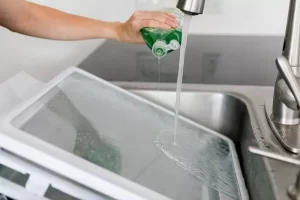
2. رفع بوی بد غذا از یخچال
قبل از تمیز کردن یخچال، کابل برق را از پشت یخچال خود تا پریزی که در آن وصل است دنبال کنید و دوشاخه را بکشید. اگر در حین تمیز کردن، یخچال را به برق وصل کنید، متوجه خواهید شد که قبض برق بعدی شما بسیار بالاست!
نکته: برخی از مدل های جدیدتر یخچال دارای دکمه خاموش هستند. اگر مال شما اینطور است، میتوانید به جای اینکه یخچال را از برق بکشید، آن را خاموش کنید.
همه مواد غذایی را از یخچال خود خارج کنید. از تمام قسمتهای یخچال خود، قفسهها، کشوها و … را خالی کنید و همه مواد غذایی ارگانیک را بیرون بیاورید. به غذا دقت کنید و اگر چیزی فاسد، پوسیده یا بوی بدی منتشر کرد، آن را در سطل زباله بیندازید. در بیشتر موارد، بوی بد یخچال شما ناشی از غذاهای فاسد است. سعی کنید زمان تمیزکردن یخچال کوتاه باشد و در مدت 4 ساعت شروع و به پایان برسانید.
هر غذایی را که برای نگهداری انتخاب میکنید در حین تمیز کردن در یک خنک کننده قرار دهید.
متناسب با مقدار غذایی که در یخچال خود نگه میدارید، و مدت زمانی که طول میکشد تا یخچال را تمیز کنید، ممکن است غذای شما در این مدت فاسد شود. برای جلوگیری از خراب شدن غذای خوب، زمانی که در حال تمیز کردن یخچال هستید، آن را در یخچال قرار دهید. اگر درب یخچال را ببندید، غذای یخچالی خودش را سرد نگه میدارد.
دیوارها و کف یخچال را با مخلوطی از جوش شیرین و آب بشویید.
1 فنجان (128 گرم) جوش شیرین را در 1 گالن (3.8 لیتر) آب گرم حل کنید. یک اسفنج معمولی را به مخلوط آغشته کنید، آن را کمیفشار دهید و داخل یخچال را پاک کنید. دیوارها، سقف و پایین یخچال را بشویید. زمانی را برای خیساندن و پاک کردن لکه های باقیمانده غذا اختصاص دهید. اگر مخلوط، قدرت خود را از دست داد یا سینک پر از تکههای غذا شد،مخلوط جوش شیرین و آب گرم را دور بریزید و و یک مخلوط جدید را درست کنید. همچنین میتوانید از محلولی که معادل سرکه و آب است برای تمیز کردن داخل یخچال خود استفاده کنید.
تمام قفسهها، کشوها و سایر قطعات قابل جابجایی را بیرون آورده و بشویید.
تمام اجزای یخچال که به دیوارهای یخچال وصل نیستند، از جمله کشوهای سبزیجات و خود قفسه ها را بردارید. قبل از خشک کردن کامل و نصب مجدد، تمام قطعات را با مخلوط جوش شیرین خود بشویید. همچنین حتما به زیر سطل های سبزیجات نگاه کنید. گاهی اوقات تکههای غذا و آب قدیمیزیر سطلها جمع میشوند و بوی بدی ایجاد میکنند. از استفاده از سمت زبر اسفنج بر روی شیشه یا پلاستیک خودداری کنید زیرا ممکن است خراش بر جای بگذارد.

3. جلوگیری از بوی بد یخچال
برای جلوگیری از جمع شدن بوی بد، هر هفته غذای تاریخ مصرف گذشته را دور بریزید. برای جلوگیری از ایجاد بوی بد در یخچال در آینده، به این نکته توجه کنید که در هفته یا بیشتر یخچال خود را نگاه کنید و مواد غذایی تاریخ مصرف گذشته را بردارید. این اقدام پیشگیرانه از ایجاد بوی بد در وهله اول جلوگیری میکند. پیشگیری از بوی بد یخچال بسیار ساده تر از، از رفع آن است.
غذاهای تازه را در جایی که قابل مشاهده هستند نگهداری کنید تا بدون توجه فاسد نشوند.
اگر اقلام تازه مانند میوه ها و سبزیجات در یک کشوی سبزیجات که به ندرت باز میشود یا در پشت قفسه پایینی قرار بگیرند، به راحتی بدون توجه شما خراب میشوند. با ذخیره کردن آنها در مکانی که بتوانید روزانه آنها را ببینید از این امر جلوگیری کنید. اگر متوجه شدید که مواد غذایی تازه خراب شدهاند، فوراً آنها را دور بریزید. میوه ها و سبزیجات را در قفسه پایینی قرار دهید، جایی که به راحتی قابل مشاهده باشند.
دمای یخچال خود را بین ۳۵ تا ۳۸ درجه فارنهایت (۲ تا ۳ درجه سانتی گراد) تنظیم کنید.
وقتی در این محدوده دمایی نگهداری شود، غذا بدون خراب شدن باقی میماند. از آنجایی که فقط زمانی که غذا فاسد میشود بوی آن شروع میشود، تا زمانی که دما در این محدوده باقی بماند، بوی تازه و تمیزی یخچال خود را حفظ خواهید کرد. اگر دمای یخچال شما از 40 درجه فارنهایت (4 درجه سانتیگراد) بالاتر رود، باکتری ها شروع به رشد کرده و غذا شروع به بوی بد میکند. اگر دمای یخچال را روی ۳۲ درجه فارنهایت (۰ درجه سانتیگراد) یا کمتر تنظیم میکردید، مطمئناً غذا یخ میزد.
باقیمانده غذا را در ظروف دربسته نگهداری کنید تا از بوی بد غذا جلوگیری شود.
اگر غذا را بدون درپوش در یخچال بگذارید یا مثلاً در یک جعبه مقوایی نگه دارید، به سرعت خراب میشود. هرچه زودتر غذا خراب شود، زودتر بدبو میشود. با نگه داشتن غذاهای باقیمانده در یک ظرف دربسته، به ماندگاری طولانیتر آنها و جلوگیری از بوی بد کمک میکنید. به عنوان یک اقدام برای جلوگیری از فاسد شدن مواد غذایی در یخچال، باقیمانده های غذا را هنگام نگهداری برچسب بزنید. مثلاً بنویسید: «16 خرداد؛ برنج و مرغ».
نکته:
صرف نظر از اینکه کدام روش را انتخاب میکنید، تا زمانی که بوی بود از بین نرود، غذا را دوباره در یخچال خود قرار ندهید. بعد از تمیز کردن یخچال، بطریهای چاشنی و ظروف غذا را قبل از قرار دادن دوباره تمیز کنید. گاهی اوقات بوی بد میتواند به آنها بچسبد. اگر مجبورید یخچال خود را برای مدت طولانی خاموش یا از برق بکشید، به عنوان مثال، اگر به یک تعطیلات چند ماهه میروید، آن را تمیز کنید. همه مواد غذایی را بیرون بیاورید و درب را باز بگذارید زیرا گرم است.
اخطار
هرگز قفسه شیشه ای سرد را با آب داغ تمیز نکنید. یا اجازه دهید به دمای اتاق برسد یا از آب ولرم استفاده کنید. تغییر دمای ناگهانی میتواند شیشه را بشکند. از استفاده از وسایل تمیز کننده ساینده (مانند پشم فولادی) برای تمیز کردن سطوح یخچال و فریزر خودداری کنید. اینها پتانسیل ایجاد خراش روی سطوح یخچال را دارند.
____________________________________________________________________________________________________________________________________________
برای مشاهده مقالات بیشتر اینجا کلیک کنید و ما را در شبکههای اجتماعی مختلف اینستاگرام، تلگرام، آپارات و لینکدین همراهی کنید. نظر خودتان را در مورد این مقاله در قسمت دیدگاه بنویسید.
____________________________________________________________________________________________________________________________________________
 فروشگاه لوازم خانگی لوپز | فروش لوازم خانگی لوپز به سادگی هر چه تمام
فروشگاه لوازم خانگی لوپز | فروش لوازم خانگی لوپز به سادگی هر چه تمام 